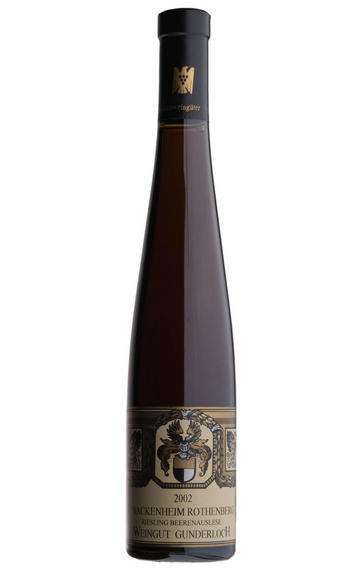
2002 Nackenheimer Rothenberg Riesling Trockenbeerenauslese, Gunderloch
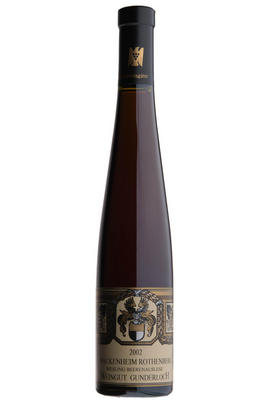
About this WINE
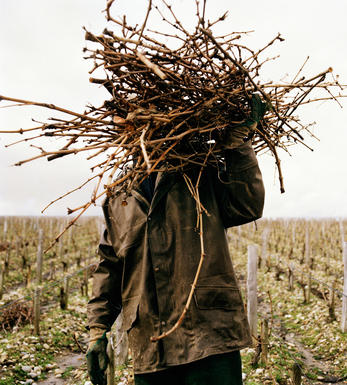
Weingut Gunderloch
The banker Carl Gunderloch established Weingut Gunderloch in 1890 at Nackenheim in the Rheinhessen. Since 1989 it has been run by his great-great-grandaughter Agnes HasselbachUsinger and her husband, Fritz Hasselbach.
The estate has nearly 13 hectares of vineyards, including an almost monopole position in the world-famous Rothenberg. This is situated on one of the steepest slopes on the Rhine and is classified as one of only 3 Grand-Cru `A` vineyards in all of Rheinhessen. Everything from Kabinett through to Trockenbeerenauslese is produced from the Rothenberg - average yields are 45hl/ha, which are amongst the lowest in Germany and result in wines of concentration and intensity.
These wines are models of elegance, subtlety, depth and balance.
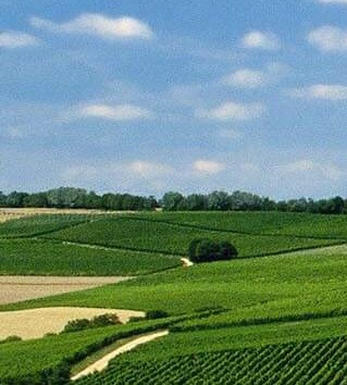
Rheinhessen
Situated in southwestern Germany, Rheinhessen is the country's largest and one of the most prominent wine regions. It's known for its rich winemaking heritage and diverse terroirs, significantly contributing to the nation's wine production.
Rheinhessen covers a vast area, with vineyards extending along the banks of the Rhine River. It's located in Rhineland-Palatinate and neighbours other well-known wine regions such as the Pfalz and the Rheingau.
The region benefits from a temperate continental climate with relatively mild temperatures. This climate, along with the moderating influence of the Rhine River, provides a favourable environment for grape cultivation.
Rheinhessen is home to a diverse range of grape varieties. While Riesling is the most celebrated, other grapes like Silvaner, Pinot Blanc, Pinot Gris, and Pinot Noir are also cultivated. The region's versatility in grape varieties allows for producing a broad spectrum of wine styles, from dry and crisp whites to fruity reds.
The soils vary throughout the region. Loess, limestone, and clay soils are prevalent, contributing to the diverse terroirs that influence the characteristics of the wines.
Like many wine regions worldwide, Rheinhessen has embraced sustainable and eco-friendly winemaking practices. Several wineries, such as Weingut Wittmann, have gained international recognition for their commitment to organic and biodynamic farming. These practices prioritize environmentally responsible viticulture and have resulted in high-quality, terroir-driven wines.
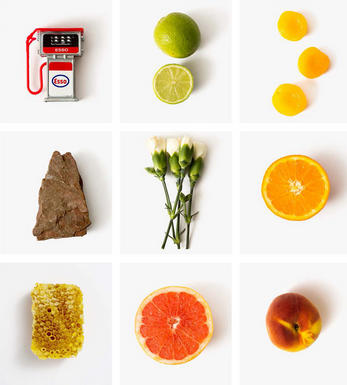
Riesling
Riesling's twin peaks are its intense perfume and its piercing crisp acidity which it manages to retain even at high ripeness levels.
In Germany, Riesling constitutes around 20% of total plantings, yet it is responsible for all its greatest wines. It is planted widely on well-drained, south-facing slate-rich slopes, with the greatest wines coming from the best slopes in the best villages. It produces delicate, racy, nervy and stylish wines that cover a wide spectrum of flavours from steely and bone dry with beautifully scented fruits of apples,apricots, and sometimes peaches, through to the exotically sweet flavours of the great sweet wines.
It is also an important variety in Alsace where it produces slightly earthier, weightier and fuller wines than in Germany. The dry Rieslings can be austere and steely with hints of honey while the Vendages Tardives and Sélection de Grains Nobles are some of the greatest sweet wines in the world.
It is thanks to the New World that Riesling is enjoying a marked renaissance. In Australia the grape has developed a formidable reputation, delivering lime-sherbet fireworks amid the continental climate of Clare Valley an hour's drive north of Adelaide, while Barossa's Eden Valley is cooler still, producing restrained stony lime examples from the elevated granitic landscape; Tasmania is fast becoming their third Riesling mine, combining cool temperatures with high UV levels to deliver stunning prototypes.
New Zealand shares a similar climate, with Riesling and Pinot Gris neck to neck in their bid to be the next big thing after Sauvignon Blanc; perfectly suited is the South Island's Central Otago, with its granitic soils and continental climate, and the pebbly Brightwater area near Nelson. While Australia's Rieslings tend to be full-bodied & dry, the Kiwis are more inclined to be lighter bodied, more ethereal and sometimes off-dry; Alsace plays Mosel if you like.


Buying options
Add to wishlist
Description
"A bold, assertive dessert wine. Plenty of mineral, spice, orange peel and dried apricot aromas and flavors pulse through the unctuous texture courtesy of the racy acidity. Still a little young, this needs time to integrate. Terrific finish. Best from 2005 through 2020." 98/100 points (Wine Spectator - Mar-2004)
wine at a glance
Delivery and quality guarantee